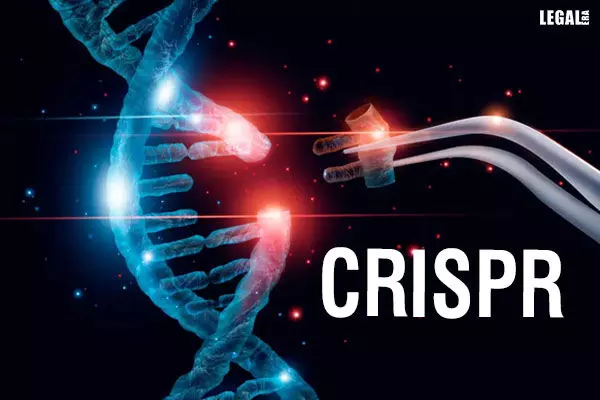- Home
- News
- Articles+
- Aerospace
- Artificial Intelligence
- Agriculture
- Alternate Dispute Resolution
- Arbitration & Mediation
- Banking and Finance
- Bankruptcy
- Book Review
- Bribery & Corruption
- Commercial Litigation
- Competition Law
- Conference Reports
- Consumer Products
- Contract
- Corporate Governance
- Corporate Law
- Covid-19
- Cryptocurrency
- Cybersecurity
- Data Protection
- Defence
- Digital Economy
- E-commerce
- Employment Law
- Energy and Natural Resources
- Entertainment and Sports Law
- Environmental Law
- Environmental, Social, and Governance
- Foreign Direct Investment
- Food and Beverage
- Gaming
- Health Care
- IBC Diaries
- In Focus
- Inclusion & Diversity
- Insurance Law
- Intellectual Property
- International Law
- IP & Tech Era
- Know the Law
- Labour Laws
- Law & Policy and Regulation
- Litigation
- Litigation Funding
- Manufacturing
- Mergers & Acquisitions
- NFTs
- Privacy
- Private Equity
- Project Finance
- Real Estate
- Risk and Compliance
- Student Corner
- Take On Board
- Tax
- Technology Media and Telecom
- Tributes
- Viewpoint
- Zoom In
- Law Firms
- In-House
- Rankings
- E-Magazine
- Legal Era TV
- Events
- Middle East
- Africa
- News
- Articles
- Aerospace
- Artificial Intelligence
- Agriculture
- Alternate Dispute Resolution
- Arbitration & Mediation
- Banking and Finance
- Bankruptcy
- Book Review
- Bribery & Corruption
- Commercial Litigation
- Competition Law
- Conference Reports
- Consumer Products
- Contract
- Corporate Governance
- Corporate Law
- Covid-19
- Cryptocurrency
- Cybersecurity
- Data Protection
- Defence
- Digital Economy
- E-commerce
- Employment Law
- Energy and Natural Resources
- Entertainment and Sports Law
- Environmental Law
- Environmental, Social, and Governance
- Foreign Direct Investment
- Food and Beverage
- Gaming
- Health Care
- IBC Diaries
- In Focus
- Inclusion & Diversity
- Insurance Law
- Intellectual Property
- International Law
- IP & Tech Era
- Know the Law
- Labour Laws
- Law & Policy and Regulation
- Litigation
- Litigation Funding
- Manufacturing
- Mergers & Acquisitions
- NFTs
- Privacy
- Private Equity
- Project Finance
- Real Estate
- Risk and Compliance
- Student Corner
- Take On Board
- Tax
- Technology Media and Telecom
- Tributes
- Viewpoint
- Zoom In
- Law Firms
- In-House
- Rankings
- E-Magazine
- Legal Era TV
- Events
- Middle East
- Africa
Gene-Editing Patent Dispute Takes A Twist: CAFC Vacates Broad Institute's CRISPR Victory

Gene-Editing Patent Dispute Takes A Twist: CAFC Vacates Broad Institute's CRISPR Victory
Introduction
The U.S. Court of Appeals for the Federal Circuit (CAFC) vacated and remanded a Patent Trial and Appeal Board (PTAB) decision that awarded priority to the Broad Institute in the high-profile CRISPR-Cas9 patent dispute on 12 May, 2025.The court determined that the PTAB adopted the incorrect standard by asking the Regents of the University of California, the University of Vienna, and Emmanuelle Charpentier ("the Regents") to demonstrate that their innovation was known to work.
Factual Background
The argument revolves around the CRISPR-Cas9 gene-editing technology, with both sides claiming priority. The Regents filed patent applications for CRISPR-Cas9 in all types of cells, whereas the Broad Institute received patents for its usage in eukaryotic cells.
Procedural Background
The PTAB awarded priority to the Broad Institute, holding that the Regents failed to conceive of the invention before the Broad’s reduction to practice. The Regents appealed, arguing that the PTAB applied the wrong standard for conception.
Issues Involved
1. Conception Standard: Whether the PTAB applied the correct standard for conception.
2. Written Description: Whether the Regents’ 2012 provisional applications provided adequate written description.
Contentions of the Parties
Plaintiff’s Contentions: The Regents argued that the PTAB erred in requiring proof that the invention would work. They claimed that conception occurred when they had a definite and permanent idea of the operative inventions.
Defendant’s Contentions: The Broad Institute countered that the Regents’ scientists lacked confidence that the CRISPR-Cas9 system would function in eukaryotic cells, and therefore, did not conceive the invention.
Reasoning and Analysis
The CAFC held that the PTAB applied the wrong standard for conception, requiring the plaintiff to show that their invention was known to work. The court held that conception doesn’t require certainty of success, instead, it asks whether the inventors had a definite and permanent idea of the operative inventions.
Final Decision
The CAFC vacated the PTAB’s decision and remanded for re-evaluation under the correct framework. The plaintiff must now demonstrate either conception before Broad’s October 2012 reduction to practice and diligence in reducing it themselves or that the defendant derived the invention from them.
Law Settled
This judgment depicts the standard for conception in patent law, emphasizing that certainty of success is not required. The decision indicates the importance of applying the correct framework in determining priority in patent disputes.



